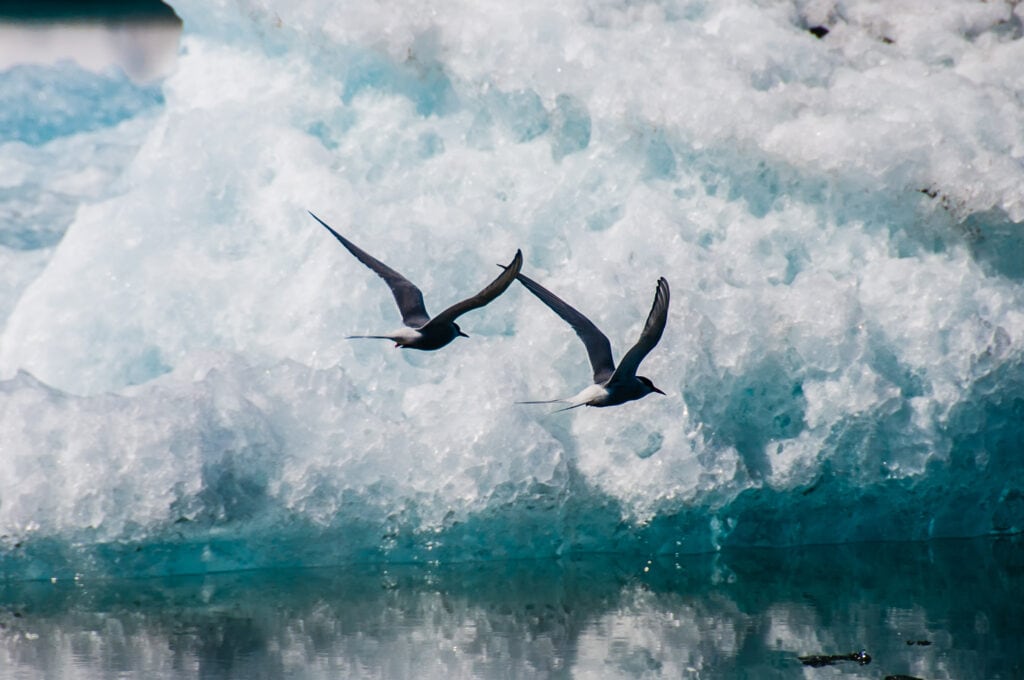Climate change is a constant source of worry for ecologists, conservationists, and all of those who love birds and nature itself. A study from earlier this year raised alarm bells when it indicated that rising global temperatures may be causing migratory birds around the world to produce less offspring.
Related Article: Newly Discovered Penguin Fossils Uncover Ancestry of Little Penguins
Shifting climates are already affecting the typical ranges of birds. You may have heard about the irruption of Anhingas in New York this spring, which some have speculated to be, not a typical fluke irruption, but the first sign of a broadening range for a bird which favors warm coastal temperatures.
Now, a new study has attempted to make sense of the effects of climate change on bird populations, with unexpected results. The Arctic Tern is the longest migrating animal on the earth. They cover about 25,000 miles as they traverse the globe from the North Pole to the South Pole. They are a long-lived species that can make this incredible journey many times over the course of a lifespan that is sometimes greater than thirty years.
With so much ground to cover, you would think that the Arctic Tern might be especially sensitive to climate change. A study, led by the University of Exeter, found the opposite to be true.
It is important to note, that the study did not find that Arctic Terns are or will be unaffected by climate change. In fact, changes in food availability in the North Atlantic are expected to impact this species. Changing wind conditions, as well, are projected to affect the Arctic Tern’s migration routes. What the study did find is that, likely due to its wide migratory range, the Arctic Tern may be resilient to the other major effects of climate change. That is to say, the catastrophic disruptions that climate change poses to some species does not seem to be present for the Arctic Tern.
Living life over so vast a range may give Arctic Terns a unique ability to “escape” some of the consequences of climate change using a sort of “rolling stone gathers no moss” approach. This study is just one more thread in a growing tapestry of research devoted to understanding the changes that a warming climate will bring to this planet’s wildlife. For many birds, these changes are a looming threat, but understanding what makes a species climate resilient may afford us a new tool for adapting to these changes.
Popular Article: Can “Smart Eggs” Help Save Endangered Birds?

